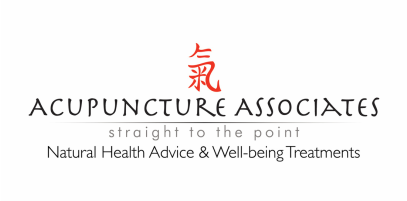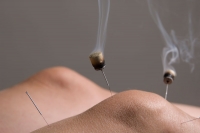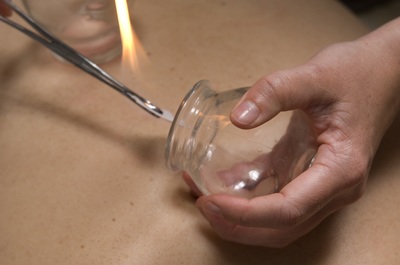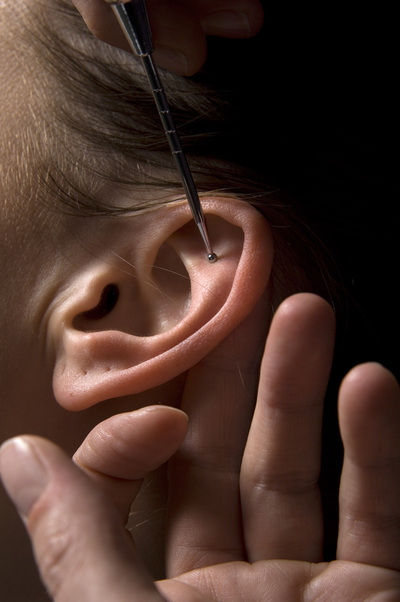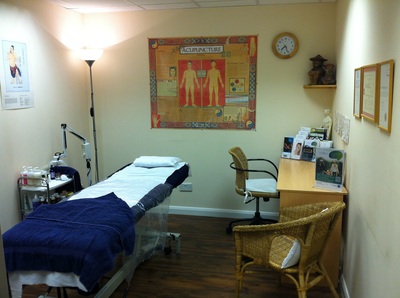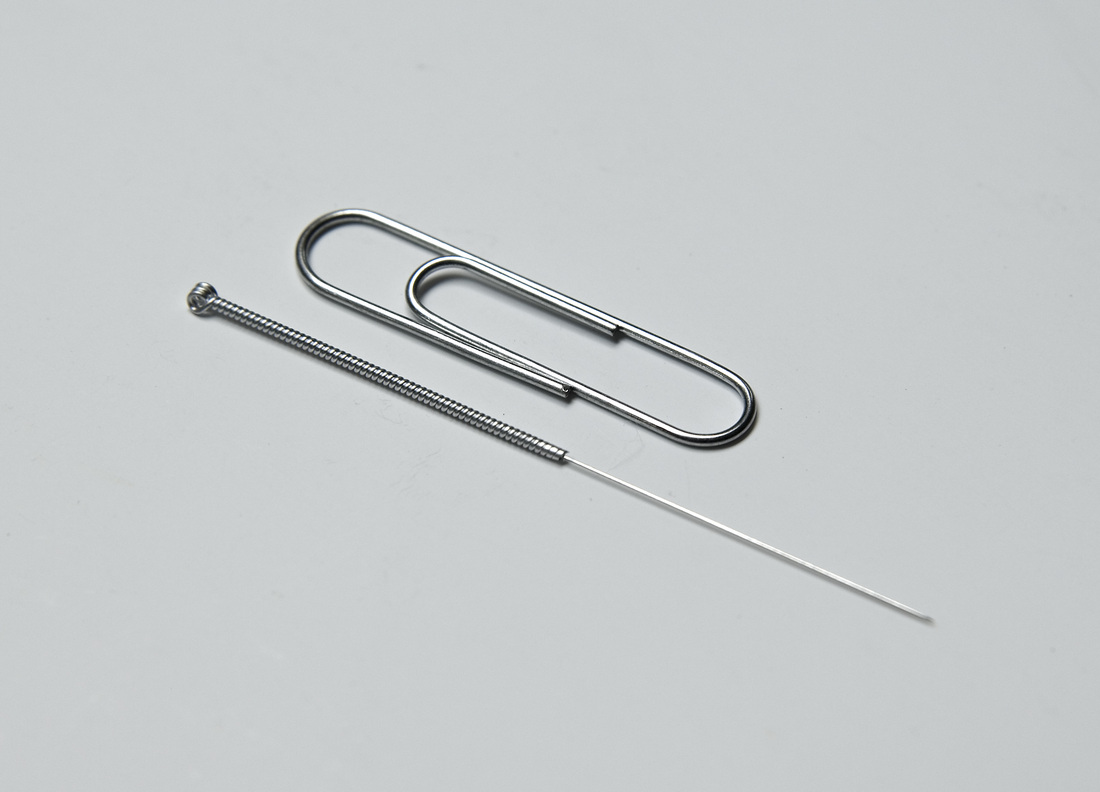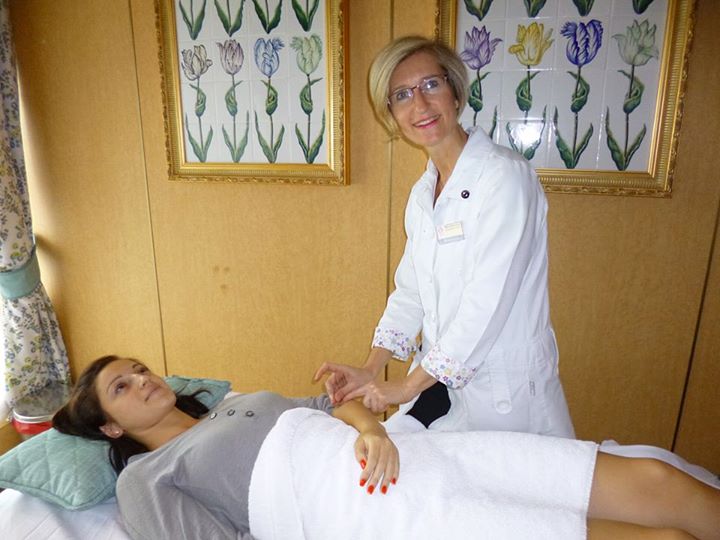Acupuncture FAQ
|
"When you are under 30, you can cheat disease, when you are over 30, disease cheats you" |
What is Acupuncture?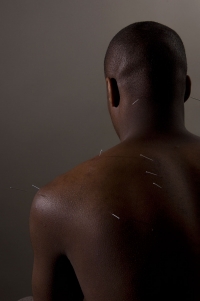
Acupuncture is a healthcare
system that has existed as a branch of Traditional Chinese Medicine (TCM) for
thousands of years in China
and the Far East. It is a procedure by which disease can be
prevented and treated through the proper insertion of very fine, sterile
needles into specific acupuncture points accompanied by different manipulations
in order to stimulate the body's healing energy or 'Chi'. Chi flows beneath the
surface layers of the skin in channels of energy known more popularly as
'meridians' or 'channels'.
Can Acupuncture help me?
To find out more about how
acupuncture can help your specific condition, please take a look at the BAcC research
fact sheets or call Emma on 07903 106560 or email [email protected], without obligation.
What does Acupuncture feel like?
Acupuncture needles are so
fine and slender that when deftly inserted by a skilled acupuncturist, the
needle produces little or no sensation at all.
However, once the needle reaches the acupuncture point, a sensation of
‘Chi’ (the energy) is obtained. Most
patients typically experience a slight tingling sensation or dull ache. First time patients are usually amazed at how
comfortable and relaxed they are during treatment.
The bottom line is if you have ever had any waxing, electrolysis, tattoos or body piercings done, you can easily receive acupuncture. What if I'm scared of needles?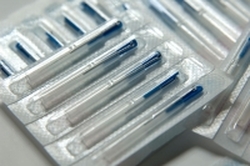
Having been needle phobic
myself, I recognise and appreciate that a phobia of needles prevents many
Westerners from trying acupuncture and would like to reassure you that whilst
acupuncture is not painless, neither can it be described as painful.
Contrary to popular belief, acupuncture needles bear little or no resemblance to conventional hypodermic needles used for injections or blood tests. Acupuncture needles are typically no bigger than a human hair or piece of thread and are fine, flexible and solid. Only sterilised, disposable needles are used. Please inform me if you are needle phobic and I will guide and reassure you through the acupuncture process. How many needles are used during treatment?
This depends on the
individual and will vary according to the condition being treated. All needles are disposed of after a single
application.
How long are the needles left in?
Depending on the patient’s
condition and the treatment plan, needles are commonly left in place for up to
30 minutes.
How many treatments will I need?
Because each patient’s
health problems and response to treatment are unique, the number and frequency
of treatments vary. This will be
discussed with you at your first appointment.
What happens at treatments?
A full medical history is taken at the first
appointment. You will be asked about
your current symptoms, treatments you have received so far, prescribed
medications, the state of your body’s systems, sleep patterns and emotional
factors. The pulse and tongue are also
studied to assess your physical health and flow of energy.
|
Is Acupuncture Safe?
Acupuncture is one of the
safest complementary therapies on offer in the UK.
What are the main objectives of Acupuncture treatment?
The 3 main objectives are
Is Acupuncture effective?
Ultimately, acupuncture is
effective because acupuncturists have been treating billions of people,
including mighty Chinese Emperors, for thousands of years, for one simple
reason – because it works!
Acupuncture is becoming universally accepted. It is being utilised in more and more hospitals, pain management clinics, GP surgeries and rehabilitation centres where acupuncturists are a welcome and valuable part of the team. Acupuncture is now being used by all branches of the US military to treat many conditions, including pain and post-traumatic stress disorder for wounded combat veterans. Studies have shown that acupuncture treatment can be effective in treating back pain. In recognition of the benefits of acupuncture for providing pain relief, NICE (National Institute of Clinical Excellence) issued guidelines in May 2009 recommending that a course of 10 sessions of acupuncture be made available on the NHS for persistent, non-specific low back pain. Research by the University of Regensburg showed that acupuncture was 74% more likely to lead to a sustained reduction in pain or improved ability to function normally than physiotherapy, medication and advice on exercise. Several leading NHS London hospitals are now integrating acupuncture into their pain management clinics. In September 2012, NICE recognised acupuncture’s benefits for migraines and tension-type headaches too. What can Acupuncture treat?
Acupuncture can treat a variety of specific
symptoms or conditions, but it is important to realise that Traditional Chinese
Acupuncture recognises that each person’s diseased state is unique, therefore
the treatment emphasis is on the individual person, rather than the actual
disease label itself. In this way, the patient is treated on a mental,
emotional, physical and spiritual level.
The World Health Organisation (WHO) has identified a list of conditions that acupuncture can benefit. There is good scientific evidence for the effectiveness of acupuncture in relieving
It must be borne in mind that there are numerous other complaints that can be helped; however there is no specific research that identifies it in accordance to modern measuring techniques. Why does my Acupuncturist ask me to stick out my tongue?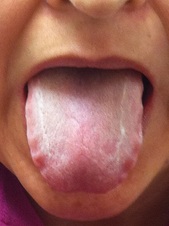
Tongue Diagnosis is an important aspect of
Traditional Chinese Medicine (TCM) both for assessing an individual’s current
health and vitality, and providing a basis for prognosis. The tongue is
like a “window” through which one can observe changes in the internal organs,
body fluids and hormones within. Observation of the tongue – the shape,
colour, coating and moisture consistency – informs the acupuncturist about the
underlying strengths or weaknesses of the individual’s constitution. It
is not at all unusual for the acupuncturist to spend some time assessing or
re-assessing your tongue.
Why does my Acupuncturist feel my pulse?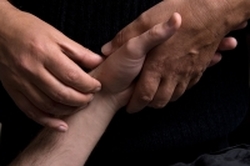
Chinese pulse examination, used in
conjunction with tongue diagnosis, can yield a vast amount of clinically
significant data about an individual’s health and vitality.
The pulse is felt at the radial artery of each wrist and is divided into three distinct zones, each zone relating to a particular organ. The pulse is palpated at three different depths – superficial, middle and deep levels – thus enabling the acupuncturist to assess any pathological changes within the organ systems of TCM. Classically, there are 28 different pulse qualities and, by feeling the quality of the pulse on both wrists, an acupuncturist is able to assess the current energetic condition of the individual and the effect any adverse pathogenic factors may have on them. |
